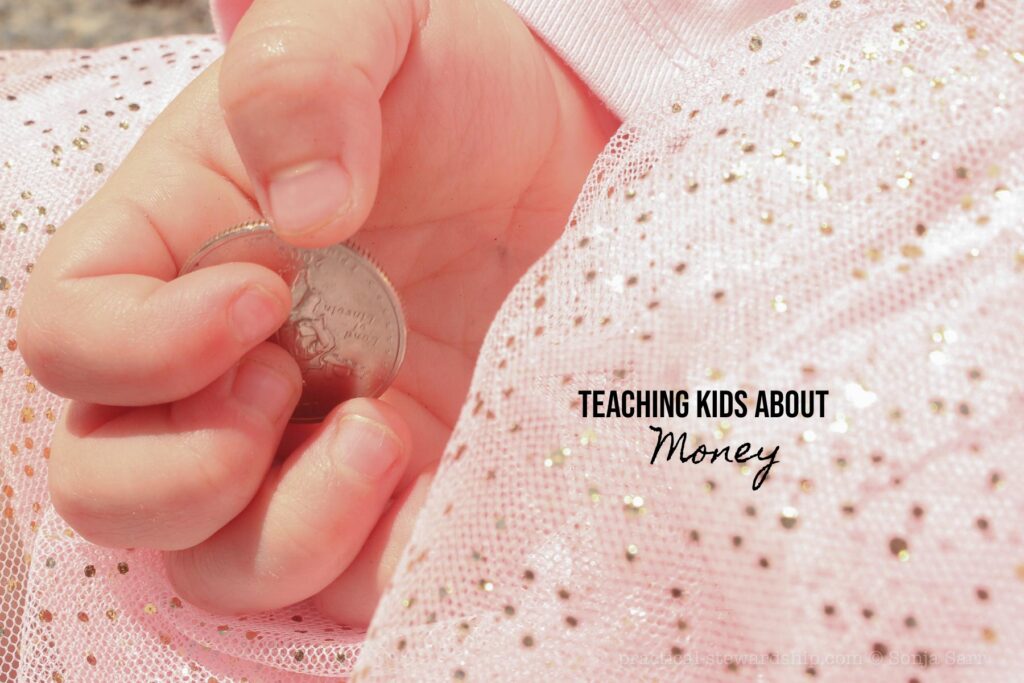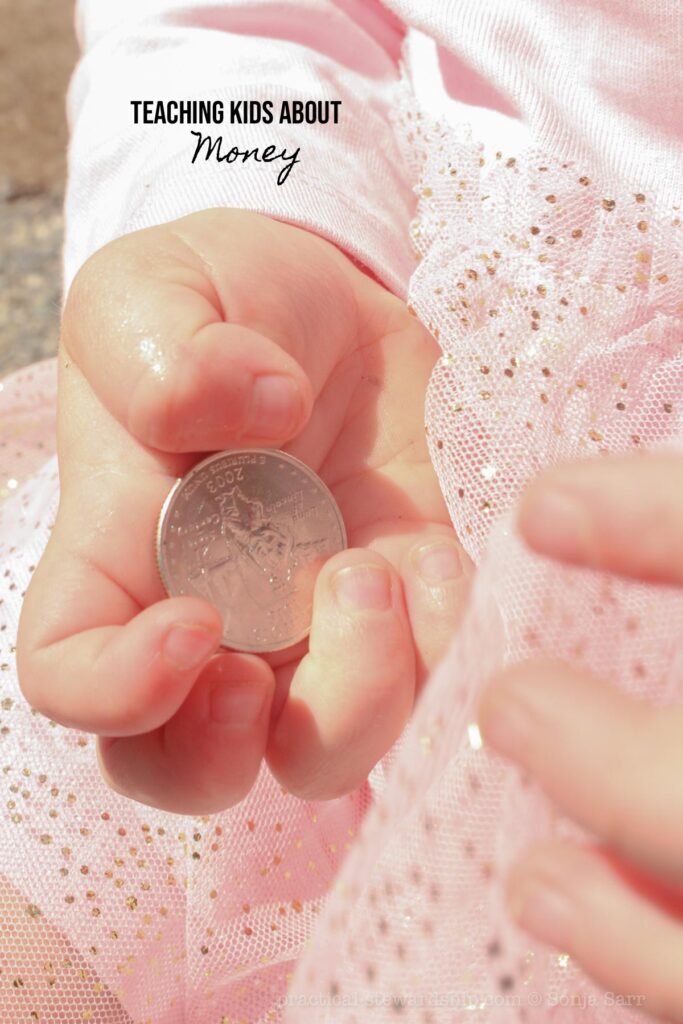Teaching Kids About Money

I think everyone should be poor for a little while (especially if I knew they wouldn’t stay that way) and would have to work to get out of it. It lends perspective. It changes the way we handle money.
When I was growing up, we would have been considered poor in the United States. I lived with my mom, dad, and sister, who is two years my junior. I remember the few apartments we lived in during our time in Houston. There was a point where all four of us ended up sleeping on the living room floor of my grandparents for several months. I remember fighting nightly with my sister about who was going to use the soft pillow. I don’t remember losing. 🙂
My parents never sat down and talked to us about how to handle money. However, my sister and I watched my mom racking up credit card debt, and my dad fixing everything and trying to do things himself. More things are caught than taught, right? My dad made curtains for his bedroom (hideous gold and dirt brown curtains, by the way). He hemmed our pants since we are of the diminutive size. He went to the library (since we didn’t have the Internet back then) to get car manuals to fix our one car. We grew up going to Goodwill every weekend. I remember him asking the clerk when the $0.10 sweater sale was going to happen. That was our life.
In our home my dad talked about never being able to afford things. Stuff is expensive, right? Yet, we never went without food, clothing or shelter. God provided. My dad was able to buy his first house in his mid-forties. He still lives in that house today.
With our own kids, we have gone about things very differently. Since they were really little, we would talk about money. I would say things like, “Save money for your house or car.” We want our kids to think big and long-term. Sure, they wanted to buy things like makeup, special snacks and Legos NOW, but they have the marathon view in their head as well.
It’s hard to fabricate poverty in our own house. Our kids have a roof over their heads. The fridge is full. They each have drawers full of clothes. I don’t really want my kids to ever be poor, but it lends perspective. So I call it fabricating poverty when we don’t give into every whim that our kids have. They need boundaries that we have to uphold. To open their eyes this spring the kids started helping at a food bank. They get a taste of how others live. And we think it’s important for the kids to serve and work for others without pay.

Our older girls work for pay as well. When they started it was $5 for 20 minute piano lessons. It has been a great way for the girls to learn to manage money. They each got a check book. They’ve made mistakes. But better the mistakes now than when they are dealing with big amounts of money and helping run a household of their own. Currently they put money towards saving, spending and tithing.
We don’t talk to our kids about not being able to afford things. We talk about planning and allocating money for certain spending categories. Jonathan and I can afford to buy more relative to the way we grew up. So even though we don’t talk about not being able to afford things, and even though we can afford a lot of things that the kids want (like clothes, hair products, DVDs, and the like), we don’t get these things for them. If they want it that badly, they have to buy it themselves. They have to have buy-in. Skin in the game. When they have some skin in the game, they treat possessions differently. Think about when you’ve gotten some stuff for free. Isn’t it easier to let some of those things get messed up, because, hey, you didn’t buy it?! I feel that way about certain clothes and games for the kids. If it gets messed up, “oh well.” So having the kids sink money into the things they want is important. They feel more ownership and responsibility.
During the start of COVID we listened to Smart Money, Smart Kids by Dave Ramsey and his daughter, Rachel Cruz, on our family walks. We brought a bluetooth speaker and blasted it, pausing it if people went by. We heartily recommend it, and we loved the conversations it sparked with the kids. As my husband always says, “we are always teaching,” so what are you teaching your kids?
Have you read How We Paid Off $38,000?
THIS POST MAY CONTAIN AFFILIATE LINKS THAT COST YOU NO MORE MONEY, BUT SUPPORT OUR BLOGGING EFFORTS. THANK YOU!
